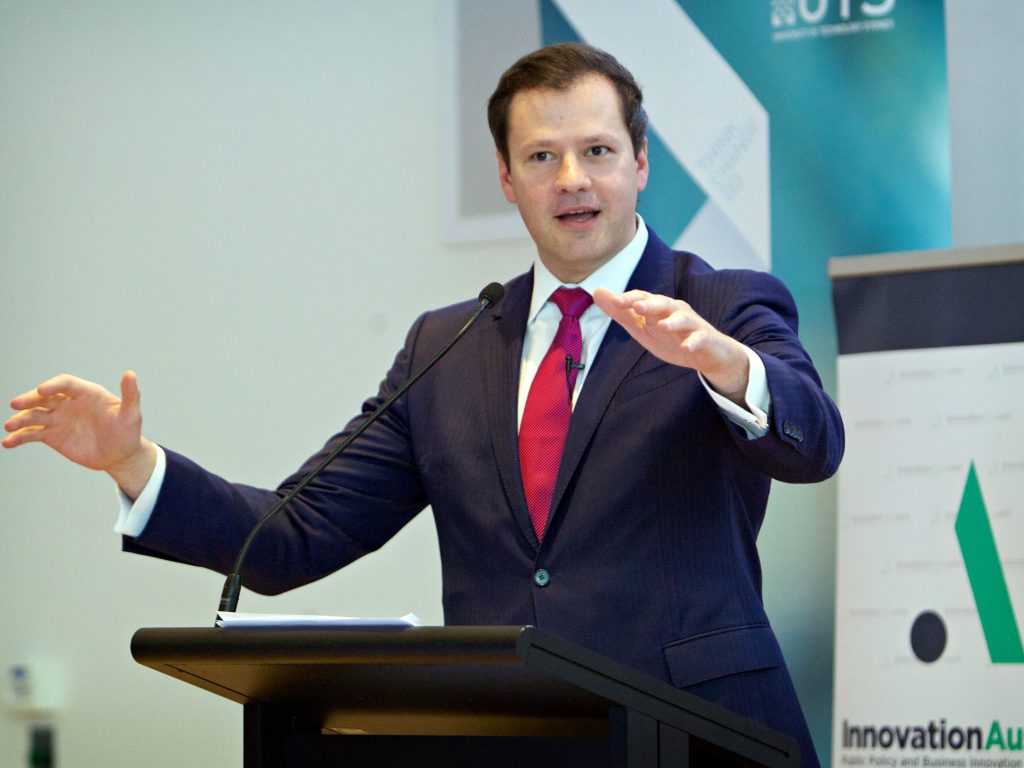Innovation politics has paid out some harsh lessons for the Coalition on the wild ride of the Australian electorate during July 2’s double dissolution poll.
With the final vote stuck in limbo until Tuesday, it appears Prime Minister Malcolm Turnbull will retain the big gig, either in a minority government or with a wafer thin majority, albeit with a Senate that will quite possibly be more of a circus than the one the double D was supposed to have fixed.

The carnage for the Coalition, especially in the electorates of Tasmania, Western Sydney, South Australia and Innovation Minister Wyatt Roy’s seat of Longman on the Sunshine Coast of Queensland has much diminished Mr Turnbull’s standing and his perceived grip on national innovation and broadband policy.
The electorate does not feel all that welcome to the “ideas boom” despite having received a blast of that message from every second bus shelter.
On the surface, the Coalition under Mr Turnbull appeared to have played a strong innovation hand coming in to Saturday night’s poll.
Mr Turnbull’s Innovation Statement in December and subsequent follow up policies around FinTech support and cyber security had the tech community in thrall.
Meanwhile, Mr Turnbull’s young Innovation Minister Wyatt Roy was running around telling anybody who would listen that they needed to be more agile and disruptive if they wanted to survive and prosper in the tech laden world ahead, in between jaunts to Silicon Valley and Israel.
But you have to bring the people with you on all the talk of jobs, growth, agility and disruption, not just some shit hot data scientist or FinTech startup founder in Sydney’s Ultimo or Melbourne’s Docklands.
The Coalition has clearly failed the inclusiveness test with its innovation shtick and young Mr Roy is possibly in search of his first real job. Perhaps as an Uber driver.
When Labor innovation spokesperson Ed Husic opened his address at the Innovationaus policy debate during the election campaign, he spoke strongly on how ordinary people were being ignored in all the posturing and posing around how grand it is to create a few billionaires from Aussie tech startups.
Mr Husic, who was debating Angus Taylor, the Coalition Assistant Minister for Cities and Digital Transformation, said the real challenge with the innovation debate was to win the issue outside the small, insider community of venture capital, startups and digital entrepreneurship.
Mr Husic described the mood around tech innovation and disruption in his electorate of Chifley which is 40 kilometres from the Sydney CBD, centred around Mt Druitt.
“If I went and had this debate in the Mt Druitt library I don’t think many people would get what we are talking about. A lot of those people think what you do and what we argue for is a job killer,” he said at the debate.
“Them not getting what we are talking about is bad news for all of us. The other issue that is contentious is whether technology is only going to make rich people richer. Is it only going to accumulate benefits to one portion of society that is already doing well?
“We see that two out of five jobs are going to be replaced by machines between now and 2030. The challenge for us now is to deal with the fear that exists in the community to ensure that it doesn’t drive heavy handed regulation in response to the fear.
We need to ensure we get the maximum benefits from technology and change and that it involves the entire nation and innovation effort and not just some of it.”
Labor’s tech policy grab bag is similar to the Coalition’s, although it is more regional in nature. In the unlikely event Labor forms government this time around, Coalition innovation measures such as equity based crowd funding will go ahead.
The Labor Party has also proposed a Smart Investment Fund that promises $500 million to partner with VCs and fund managers to co-invest in early stage companies with up to 50 per cent of the start-up capital.
Then there is Start-Up Finance, a proposal to part guarantee small loans from finance institutions to give start-ups cheaper capital.
The proposed Australian Angel Investment Scheme promises goodies such as full capital gains tax exemption for equity held in the startup venture for more than three years and upfront 50 per cent tax deductions for an investment up to a maximum of $200,000 per year.
There are also education initiatives such as boosting STEM teacher training and STEM degrees, promising to make coding courses available in all schools and establishing a National Coding in Schools Centre where industry can connect with teachers.
If a diminished Turnbull government is the final result of the July 2 poll, Coalition broadband policy is likely to become a simmering sore as the NBN rolls out in the three years ahead to the 2019 poll.
Less well-endowed bits of Mr Turnbull’s Multi Technology Mix, namely the fibre to the node connections, are going to struggle with consumer video streaming trends, particularly 4K content.
The popular Netflix service has a rapidly growing library of 4K content, as does Youtube, and anyone who has taken a stroll through the TV section of a Harvey Norman, Bing Lee or JB Hifi in recent months will have noticed that almost all new large screens have 4K capability.
Netflix says 4K needs a steady 25 megabits per second connection to work and it not hard to see a household with multiple screens in operation during the evening digital blitz blowing out a supposedly ‘fast’ 50 Mbps fibre to the node connection. As for five or ten years in the future, FTTN is going to be a bad joke for consumers and business.
It may be wise for the Coalition and NBN Co to consider Labor’s plan to fibre up the FTTN component of the NBN before the bandwidth shit really hits the fan.
Do you know more? Contact James Riley via Email.

